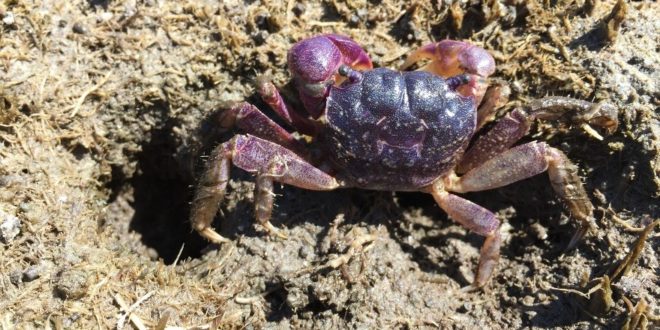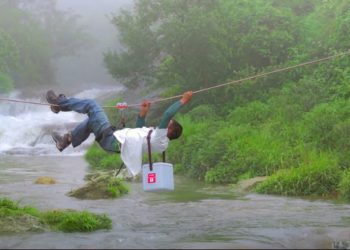A butterfly flaps its wings. A family in Iowa have their breakfast, then toss the plastic containers in the trash. All across the world, billions of people partake in small, day to day actions of living a life, oblivious to the wider impact. The interconnectivity of our ecosystem is so fascinating, detailed and complex that our every action has widespread ramifications and, although these have traditionally been hard to see, these actions add up.
Subtle shifts in global temperature, seasonal weather and even the nutrient make-up of soil can change our environment in profound ways. Climate change has been a major political consideration for a number of years now and its impact is being witnessed in unexpected ways. Across the globe, environmental scientists, ecologists and oceanographers are discovering surprising shifts in ecosystem hierarchies.
The Meek Will Inherit The Earth

The marshlands of Georgia’s coastline are changing. With satellite imaging – you can see it on Google’s or Bing’s aerial maps – fissures, seams and cracks are appearing in the neon green marshland across this coastline. What was once a vast suave of continuous green is now broken and disjointed.
Last year, scientists revealed an innocuous culprit for this environmental shift. A miniscule purple crab – Sesarma reticulatum – has been changing its behaviour in response to environmental pressures, and slowly but surely chopping up this landscape. As global warming results in rising sea levels, the marshlands have been absorbing more salt water, creating a perfect environment for Sesarma reticulatum to burrow inland.
“These crabs are fundamentally changing the Georgia coastline in ways we can now witness from space – the small actions of these tiny creatures are adding up to change the landscape they live in,” says Amanda Donovan, a writer at Assignment Help and State Of Writing. “Could this be nature sending us a profound message about the way humans live their lives?”
Changed Landscape Impacts The Ecosystem
The impact for these crabs expansion can be seen from space. But that only hints and the widespread damage that they’ve achieved in the local ecosystem. By burrowing through the Georgia marshland, the crabs created new drainage points, effectively creating a river system which flowed through the land. Thanks to the crabs – thousands of them, two inch bodies – the marshland is slowly draining into the ocean. The is rapidly accelerating the loss of marshland, threatened now by a dual threat of rising ocean levels and accelerated drainage.
The marshland itself is an essential component of a fragile ecosystem. As the marsh recedes, the habitat for a wide-range of creatures shrinks, causing dramatic upheaval in this local ecosystem. Snails and other small molluscs, for example, are threatened by this reduction in habitat as the grassland gives them protective cover from predators. As the cordgrass that thrives on the marshland disappears, the invertebrates have nowhere to hide, leading to feeding frenzies from other large crab species and redfish. The whole ecosystem is thrown out of delicate balance as local populations boom or disappear as the landscape changes.
Warming Waters
Across the Georgian marshlands, we’re witnessing a microcosm of what’s taking place across the world. Subtle shifts in global temperature are having far-reaching consequences on local and global ecosystems, and often in unexpected ways. In the Caribbean, warmer waters are expanding the habitat for lionfish, but in the zero-sum game of the underwater ecosystem, one species’s gain is another’s loss. As lionfish expand their habitat they encroach on delicate coral reefs and quickly lay waste to these precious resources. Consequently, sponges, eels and the many other animals who thrive amongst reef settings are placed in a precarious situation.
“Ecosystems are turned on their head as man-made climate impact gives certain species an unfair advantage,” says Eric S. Cha, a journalist at Academized and Assignment Writing Services. “The ecosystem is fragile and complex, meaning miniscule environmental shifts can have completely unpredictable impacts.”
Conclusion
In Georgia, rising waters took Sesarma reticulatum, a minor player in the local ecosystem and turned it into a keystone species, dominating the landscape and reaping havoc on the habitat of other local species. Climate change is here, creating unpredictable changes in local ecosystems.



